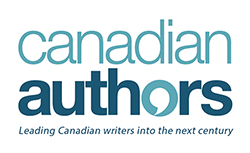by

Patrick Connors has been a mainstay of the poetry scene in Toronto for many years. His contribution and his commitment to the poetic life of the GTA and beyond is well known. Finally, The Other Life, his first collection of poems, establishes him as an original and distinctive poetic voice. His considerable reputation is already well established and this volume will be read, enjoyed and cherished by his many admirers.
Ready
A poem is the sunrise after darkest night;
an unexpected answer to much fervent prayer.
It is grace extended from a neglected muse,
only asking to be shared and seen, heard and felt.
A poem is inspiration
quickly recorded before lost,
cut down, built up, cut down again,
until it’s ready to be read
Epic
My feet
set squarely in
the present.
My eyes
firmly focused on
the future.
The narrow way
seems dangerous and hard
wrought with strife
and lonely.
But when not absorbed in
seeming circumstances
or caught up in
wavering from
side to side
it merely becomes
the surest and shortest distance
between two points.
The past has passed
and the present is
but a fleeting gift—
I will hold out for
the future
and trust in
what it brings.
Dave McKee, Editor of People's Voice, April 16 - 30 issue wrote:"Canada has long had a tradition of people’s poets. Pat Connors sees himself within this tradition. As he says in the poem To the Point: “The best poems are written to be read by anyone.” Twice in this debut collection, The Other Life, he alludes to Al Purdy and the impressions he left behind. In many ways, this is a brave book. As he confesses in the poem, Order, he is ”a White, Anglo, Hetero,/fully able, fully educated, 1st world Christian”. He writes simply and clearly about his life and his passion for ordinary things, be it baseball, Toronto, Scarborough, hockey, or travel to and from work. In this, he walks in the shadow of other Toronto forerunners – Raymond Souster, Ted Plantos and Robert Priest.
But Connors is very much his own man. The collection is about more than what, in today’s world, may be dismissed by some. He writes about his deep faith and what it brings to him. He explores coming to terms with who you are, with the spectre of family, how men are shaped, the search to find love and to be fully human, fundamental things for us all. His poems are also political, both in the governmental and social sense.
Poems such as An Open Letter to the Prime Minister and Exit Poll take political leaders to task and remind them, with wit, of the people they are elected to serve. In a sense, the title of this book, The Other Life, is a perfect one.
The poems touch a good deal on leaving behind the person pressured by society or by ourselves to conform. Connors sums this up in the poem, Recovery, “The key to my recovery lay in/The discovery of what makes me me.”
His voice is a welcome addition to the people’s poetry canon."
"Around Toronto, Patrick Connors is often referred to as a “people’s poet.” It’s an honorable epithet, but one that sometimes feels overused, tossed around without much definition attached to it. So, what should it mean?
Surely, in the first place, a people’s poet should come from the people. Their lived experience should reflect of the great majority, who live by the work of their body and mind. Wealth and privilege may often produce enormously talented artists, but not a people’s poet.
Second, their poetry should speak to the people. They may use a variety of “voices” to do this (we are talking poetry, after all), but they should direct themselves to the masses and their hopes, dreams, fears, struggles, ups and downs. Whether celebratory, consolatory or comical, we expect a people’s poet to address “us” in our daily lives.
Finally, in addition to bringing poetry to the people a people’s poet should bring the people to poetry. This doesn’t mean that everyone has to become a poet – rather, it’s about working people describing and understanding our lives in an imaginative yet concrete way, through metaphor, sound and rhythm.
In his latest work and first full book, The Other Life, Connors fulfills these roles with poems that delight, stimulate, provoke and engage. They explore many of our shared everyday experiences, but with an artistic smirk (or sneer) that allows us to look a bit deeper.
This approach is superbly demonstrated in “Inspiration.” Out of a mundane experience (a sprained knee), the author derives the simplest of pleasures (a Saturday off work) which allows him to move from the everyday life (“No backyard barbecues / or epic excursions to the bar. / No agitated trips to a stadium / to support one of my teams.”) to that “other life” where he creates poetry.
My favorite is “Hangover,” which undermines the spectacle of bourgeois elections by positioning it against the steadiness (both banal and reliable) of day-to-day life. The latter gives us the sustenance to confront the former. “The morning after / the election which changed the whole world / the sun rose faintly. / I got out of bed / pulled the cord to open the blinds.”
In poems like “Order” and “White Guilt,” Connors gives us a view into his personal experience of privilege ( “White, Anglo, Hetro, fully able, highly educated, 1st world Christian”) and class oppression ( “My great Grandfather watched his own die / Of scurvy, imperialism, lack of scholarships”). He cleverly places the latter poem beside one dedicated to Black civil rights activist Charles Roach (“Such As This”), the juxtaposition drawing each into sharper focus.
The ironically titled “Epic” (it contains only 25 lines) takes the reader on a bouncy ride from past to future and across the page. At its centre is a heroic anti-hero whose adventure is firmly grounded not in magic or legend, but in their concrete experience of the world around them: “My feet / set squarely in / the present / My eyes / firmly focused on / the future”.
Pat Connors should be proud of his first full book of poetry and working people should be proud to have him. He is truly a people’s poet."




